
ICAS Bulletin (online ISSN 2836-3418, print ISSN 2836-340X) is published every other week throughout the year at 1919 M St NW, Suite 310, Washington, DC 20036.
The online version of ICAS Bulletin can be found at chinaus-icas.org/bulletins/.
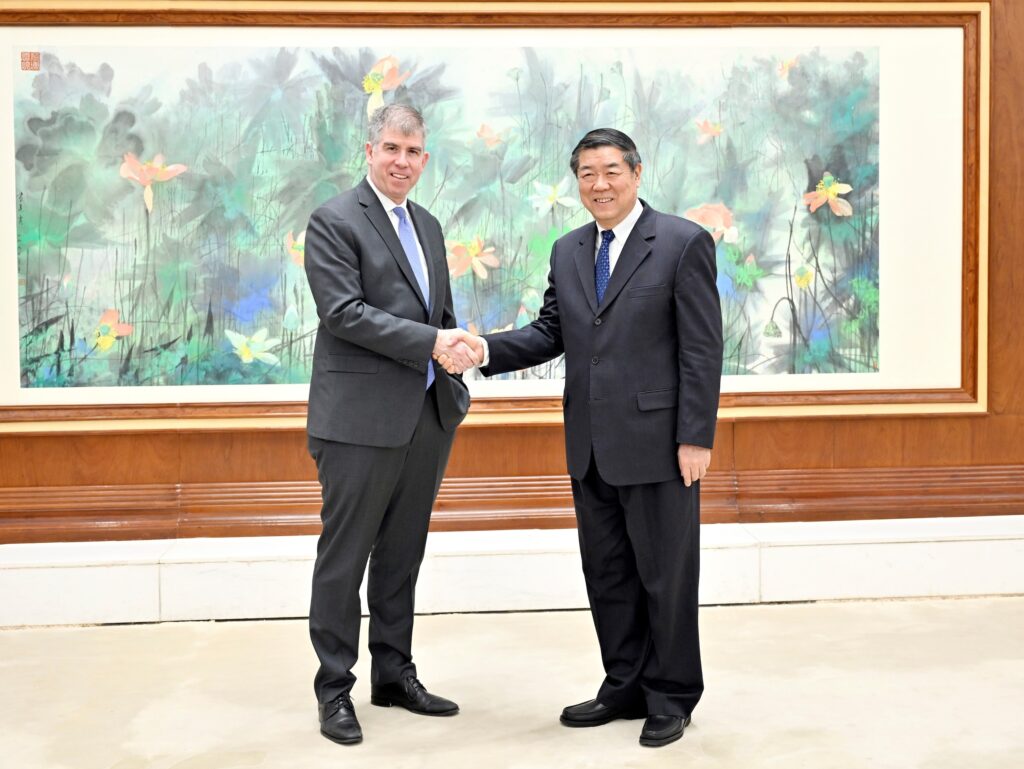
– U.S. Trade Representative Katherine Tai justified maintaining Trump-era tariffs on China, highlighting their strategic value alongside Biden’s initiatives which generated nearly a million manufacturing jobs, emphasizing a comprehensive strategy to strengthen the U.S. middle class and domestic economy.
– In 2023, U.S. agricultural exports declined to a three-year low of $191 billion, a 10% drop from the previous year, affected by commodity prices, decreased shipment volumes, and increased competition.
– On February 6, Chinese and U.S. officials met in Beijing to discuss contentious economic issues, signaling a constructive yet cautious engagement amidst escalating trade and tariff concerns in the lead-up to the U.S. presidential election.
– Last year, Mexico overtook China as the primary supplier of imports to the U.S. for the first time in two decades, marking a significant realignment in trade partnerships against the backdrop of escalating tensions between the U.S. and China.
– Goldman Sachs reported that Chinese investors are highly concerned about the possibility of Donald Trump winning the November U.S. presidential election as Donald Trump announced intentions to levy tariffs of 60% or higher on Chinese imports if re-elected, intensifying the U.S.-China trade war he initiated during his first term.
Associated News References:
“Punish China, create US jobs: trade envoy defends Joe Biden’s retention of Donald Trump-era tariffs,” South China Morning Post, February 13 [Paywall]
“US farm exports hit three-year low in 2023 as China slows buying,” Reuters, February 8
“China, US hold economic talks as trade issues heat up on the campaign trail,” ABC News, February 7
“Mexico overtakes China as the leading source of goods imported to US,” ABC News, February 7
“Trump 2.0 Tops Chinese Investors’ Concerns, Goldman Sachs Says,” Bloomberg, February 4 [Paywall]
“Trump floats ‘more than’ 60% tariffs on Chinese imports,” CNBC, February 4

– The Chinese embassy in Tokyo warned that anyone interfering with China’s reunification with Taiwan would face severe consequences, coinciding with the US and Japan’s biennial “Keen Edge 24” military drills.
– The U.S. and Japan concluded Keen Edge 24, a joint command post exercise aimed at enhancing coordination against threats from China, marking the first time the Australian Defense Force participated and China was directly named as the hypothetical adversary in a scenario involving Taiwan.
– U.S. Deputy Secretary of State Richard Verma cautioned Papua New Guinea against entering into a security pact with China, highlighting the high costs and consequences of such agreements and advocating for partnerships with nations that adhere to international standards.
– A coalition of distinguished Australians, including former officials and scholars, advocated for the government to actively mediate to prevent a potential conflict between the U.S. and China, emphasizing the need for a new détente to ensure equality and balance in the Indo-Pacific region.
– Japan is reportedly cautioning Donald Trump against entering agreements with China that might destabilize the region or negate the G7’s attempts to challenge Beijing’s influence.
– A Chinese official suggested that Donald Trump’s potential win in the upcoming U.S. presidential race could result in the U.S. withdrawing support for Taiwan, underscoring uncertainties regarding America’s dedication to the island amid persistent strain.
Associated News References:
“Beijing warns of ‘heavy price’ for ‘obstructing China’s reunification’ with Taiwan as US, Japan stage military drills,” South China Morning Post, February 7 [Paywall]
“US, Japan Accelerate War Drills to Deter China,” Voice of America, February 9
“US Official Urges Papua New Guinea to Reject Chinese Security Deal,” Voice of America, February 4
“Prominent Australians Urge Government to Do More to Defuse US-China Tensions,” Voice of America, February 3
“Japan’s message for Donald Trump: don’t cut a deal with China,” Reuters, February 2
“China Says Trump Could Abandon Taiwan If He Wins US Election,” Bloomberg, January 31 [Paywall]
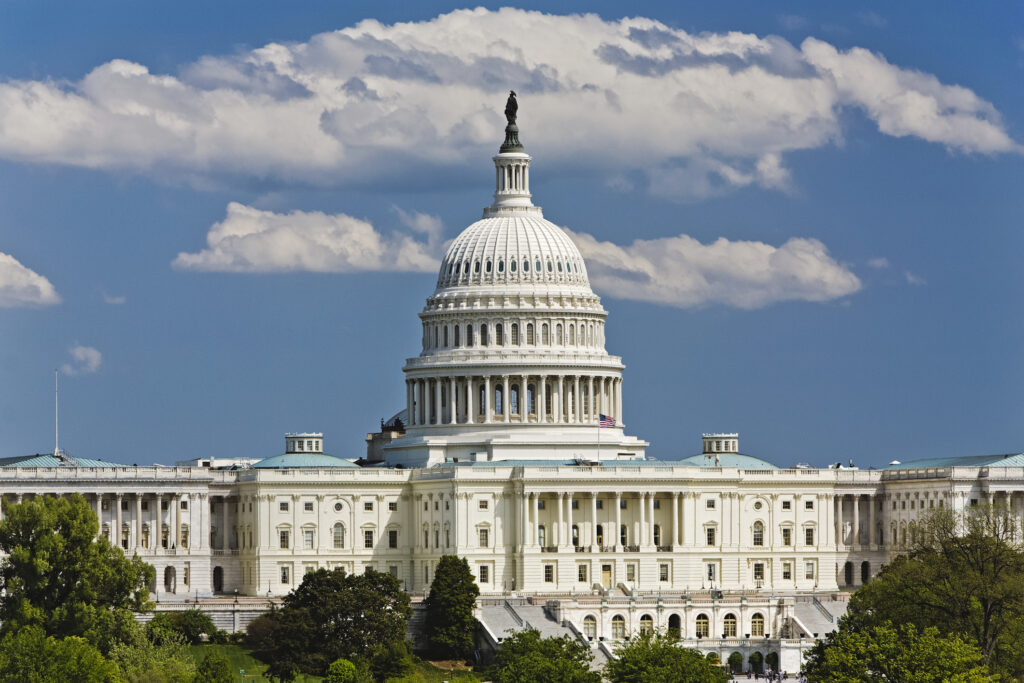
– Several U.S. lawmakers have written letters to the secretaries of Commerce, Defense and Treasury urging them to investigate Chinese biotech companies WuXi AppTec and Wuxi Biologics over alleged ties to the Chinese military.
– Legislators are urging the U.S. Department of Commerce to impose restrictions on ByteDance, the company behind TikTok, due to worries about national security involving user data and connections to the Chinese government.
– A report by the House of Representatives’ select committee on China claims that, since 2001, five U.S. venture capital firms have invested at least $3 billion into Chinese tech companies linked to military and human rights abuses in Xinjiang, and urges the Biden administration to limit investments in entities sanctioned for these connections.
– The Biden administration is considering additional restrictions, apart from tariffs, on the importation of Chinese “smart cars” and related parts into the U.S. due to data security concerns, ultimately to prevent circumvention through third countries like Mexico.
– U.S. agencies warned that China-linked hackers, part of a group known as Volt Typhoon, have been covertly present in critical U.S. computer systems for at least five years, potentially preparing for disruptive cyberattacks.
– The Biden administration is expected to announce restrictions to prevent sensitive personal data of Americans from being accessed by foreign adversaries, particularly China, due to national security concerns.
– The Pentagon has expanded its list of Chinese companies it alleges are assisting Beijing’s military efforts, which could lead to increased scrutiny and restrictions on these firms by the U.S. government.
Associated News References:
“U.S. Lawmakers Seek Investigation Against China’s WuXi AppTec,” The Wall Street Journal, February 12 [Paywall]
“Lawmakers urge Biden administration to ban TikTok parent company,” The Hill, February 9
“US lawmakers accuse VC firms of funding Chinese military-linked firms,” Reuters, February 9
“Biden Is Looking Beyond Tariffs to Keep Chinese ‘Smart Cars’ Out of the US,” Bloomberg, February 8
“China-Linked Hackers Lurk in Critical US Systems,” Voice of America, February 8
“Biden Poised to Limit American Personal Data Going to China,” Bloomberg, February 7 [Paywall]
“Pentagon calls out Chinese companies it says are helping Beijing’s military,” Reuters, February 1

– American CEOs visiting China, including Nvidia’s Jensen Huang, faced the cultural expectation to perform dances and songs at company events, showcasing a lighter, relatable side to Chinese employees, contrasting with more reserved corporate behaviors in the West.
– IDG Capital is contesting its inclusion on a U.S. Pentagon list that identifies firms with alleged ties to the Chinese military, asserting it has no connections with military entities and is seeking to resolve the confusion.
– Despite China’s economic challenges, major American companies like Apple, Mondelez, and Procter & Gamble remain committed to the Chinese market, banking on long-term consumer spending growth and government efforts to rejuvenate the economy.
– Apple Inc. experienced a marked downturn in its China-based business, with sales falling 13% to $20.8 billion in the fiscal first quarter despite a rise in total revenue and robust iPhone sales during the holiday season.
– A survey conducted by the American Chamber of Commerce in China revealed growing optimism among US companies regarding their profit potential and market growth in China despite ongoing concerns about the broader economic challenges facing China.
Associated News References:
“American CEOs Visiting China Can’t Escape It: They Have to Dance on Stage,” The Wall Street Journal, February 7 [Paywall]
“IDG Capital Works to Rebut US Claims Over China Military Ties,” Bloomberg, February 6 [Paywall]
“Big Brands Are Playing the Long Game in China,” The Wall Street Journal, February 4 [Paywall]
“Apple’s China Slump Deepens Even as Total Sales Grow Again,” Bloomberg, February 2 [Paywall]
“US Companies Turning More Optimistic on China, Survey Shows,” Bloomberg, January 31 [Paywall]

– Abu Dhabi’s artificial intelligence firm G42 is reducing its operations in China and plans to invest in Western markets, including that of the U.S., to address concerns regarding its connections with Beijing.
– As U.S. export controls intensify, China is increasingly investing in RISC-V, an open-source chip architecture, to reduce reliance on Western technology. This effort is backed by substantial government investment and has led to advancements in applications such as self-driving cars and AI models.
– U.S.-based Nvidia is set to release a new AI chip, the H20, for the Chinese market, priced competitively with Huawei’s Ascend 910B. The initial deliveries are scheduled to begin in small quantities in the first quarter of 2024 and increase from the second quarter.
Associated News References:
“Abu Dhabi AI Firm to Pare Back China Presence in Pivot to US,” Bloomberg, February 12 [Paywall]
“China bets on open-source chips as US export controls mount,” Reuters, February 4
“Nvidia’s new China-focused AI chip set to be sold at similar price to Huawei product,” Reuters, February 1
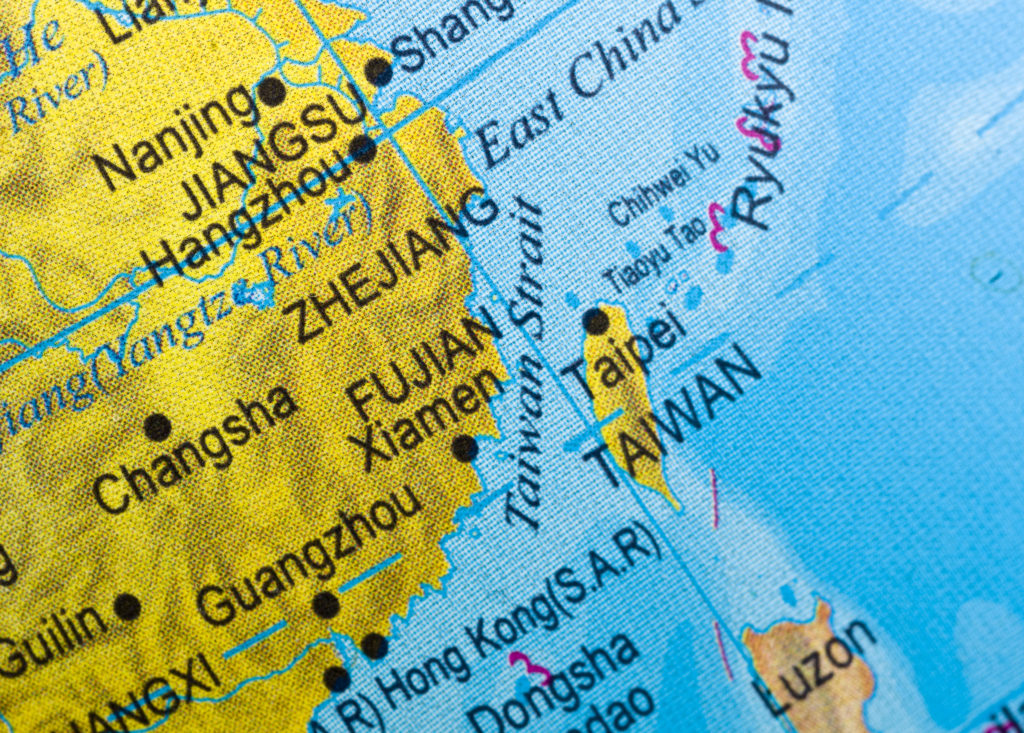
“China will not fall into ‘trap’ of war in Taiwan Strait: former envoy Cui Tiankai,” South China Morning Post, February 12 [Paywall]
“Republican China committee chairman Gallagher retiring from US Congress,” Reuters, February 10
“Two Cases Aim to Cut Off China and Iran From U.S. Technology,” The New York Times, February 7 [Paywall]
“Shein seeks Chinese regulators’ tacit approval for US public offering,” Financial Times, February 6 [Paywall]
“White House decision to not replace Asia tsar stokes concern among US allies,” Financial Times, February 6 [Paywall]
“Comments on Weibo giraffe post bemoan state of Chinese economy,” The Guardian, February 5
“Shein’s Top U.S. Lawyer Departs,” The Information, February 5 [Paywall]
“Cliff Sims, Trumpworld China hawk, named to U.S.-China commission,” Axios, February 5
“N.S.A. Installs New Director as U.S. Prepares for Election Influence Operations,” The New York Times, February 2 [Paywall]
“China-US relations: navy dialogue depends on status of American delegation, military analysts say,” South China Morning Post, February 1 [Paywall]
“China’s overcapacity a challenge that is ‘here to stay’, says US chamber,” Financial Times, February 1 [Paywall]
“Rights group warns major carmakers over risk of forced labor in China supply chains,” NPR, February 1
February 13 hosted by American Enterprise Institute
February 12 hosted by Wilson Center
February 12 hosted by Brookings
February 8 hosted by Center for Strategic & International Studies
February 8 hosted by East-West Center
February 6 hosted by Foreign Policy
February 5 hosted by Hudson Institute
February 14 hosted by Center for Strategic & International Studies
February 20 hosted by United States Heartland China Association
March 1 hosted by Cato Institute
March 21 hosted by Georgetown University
May 6 hosted by Wilson Center
Thursday, February 20, 2024
9:30am – 10:30am EDT
In late-February 2024, the U.S.-China Science and Technology Cooperation Agreement will expire if it is not signed or extended. The first major agreement to be signed by the two governments following the normalization of ties in 1979, the STA was last renewed in 2018 (and temporarily extended in August 2023). In the time since its last renewal, S&T ties have been battered by a raft of decoupling measures as well as probes by the Justice Department and the National Institutes of Health into Beijing’s economic espionage and intellectual property diversion activities. On the other hand, the U.S. and China remain each other’s top scientific partners, with collaborative research between American and Chinese nationals being a standout feature among the most-cited academic papers.
As the late-February deadline approaches, can the two sides buck the trend on technology decoupling and renew or at least temporarily extend their STA? How important is it to renew the agreement? What have been its main achievements and what are the chief criticisms levied against the agreement? Where do the negotiations on renewal stand, and what are the key improvements sought? Realistically, what are the chances of a technology cooperation agreement being signed during a charged election year? Broadening the frame, what is the state of U.S.-China S&T exchanges, and how has China’s domestic S&T ecosystem evolved over the past four decades? Will the new (Party) Central Science and Technology Commission and its emphasis on self-reliance scramble the prospects for bilateral cooperation? How should the STA be improved to reflect the new maturity, and tensions, in cross-border scientific ties? To listen to these and other answers and insights on pressing U.S.-China S&T policy questions, tune in to the event on February 20.
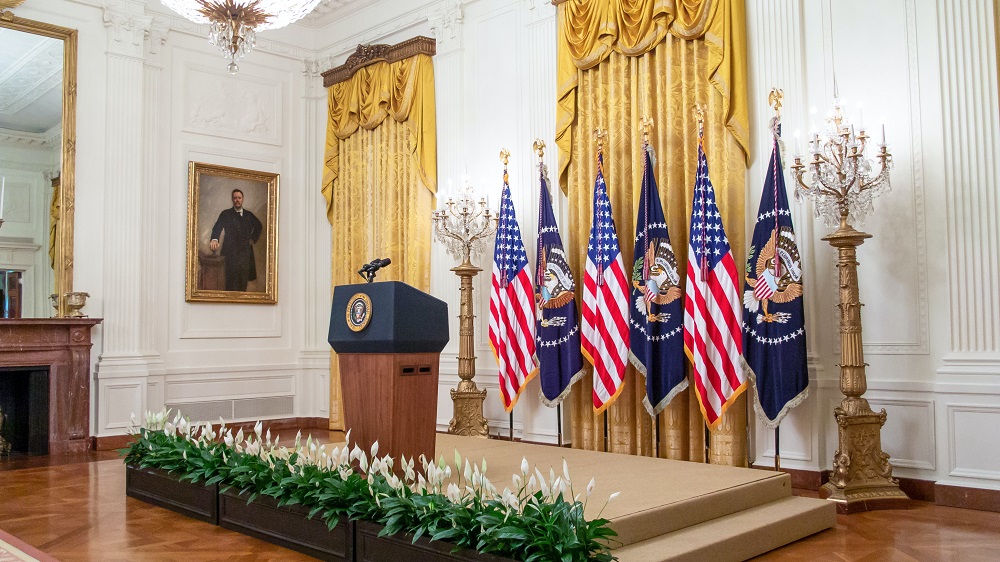
By Denis Simon
February 3, 2024
Along with the sharp divisions within government, the American public is also extremely divided and polarized. Things have gotten so bad that many American families agreed that political issues should not be discussed at last year’s Thanksgiving dinner table because of fears of arguments breaking out among relatives.
Civil, reasoned discourse has disappeared even among our major news providers. The situation has been exacerbated by social media and the fact that even among the educated population in the United States, it is difficult to distinguish truth from lies. The very fact that a sizable percentage of the American population continues to believe that Donald Trump actually won the 2020 U.S. Presidential election indicates that if something is repeated enough times and in multiple venues, it will become reality for those who lack critical thinking skills.
How did we get here? Where is the United States headed? And most importantly, is American democracy about to collapse, due to the ongoing politicization of everything in our lives?
This commentary was originally released by Xinhua on February 2, 2024
By Nong Hong
February 2, 2024
In 2024, the South China Sea is set to persist as a prominent focal point of contention, amplifying the geopolitical rivalry between the United States and China, as well as among the coastal states in the region. The competition between China and the United States, characterised by the escalation of their naval presence and active participation in military exercises, is anticipated to endure throughout 2024, signalling a sustained and potentially intensifying competition for dominance in the South China Sea. Furthermore, the upcoming year is expected to witness a concentrated surge of unilateral actions marked by the ‘assertion of rights’ and ‘expansion of rights’ by claimant countries… The South China Sea in 2024 is thus poised for continued volatility and complex dynamics as geopolitical forces vie for influence in this strategically significant maritime expanse…
This piece was originally released by 9DASHLINE as part of a multi-response commentary on February 2, 2024


by Sourabh Gupta
January 29, 2024
“Every ‘world order’ expresses an aspiration to permanence,” wrote the late and great Henry Kissinger in his 1994 masterpiece “Diplomacy,” “yet the elements that comprise it are in constant flux.” The current U.S.-dominated global order is no exception. Its hub-and-spoke deterrence architecture in the Asia-Pacific and, for that matter, the foundation and framework of China-U.S. ties, are not set in stone…The present global order is facing multiple threats. While these threats are not inescapable, they must be handled with flexibility and sensitivity…
This commentary was originally released by Asia Research Institute, National University of Singapore on January 29, 2024 and republished in The Diplomat on January 30, 2024
On Thursday, February 8, 2024, Distinguished Fellow Denis Simon quoted in nature on the slow progress of the U.S.-China Science and Technology Agreement (STA) negotiations.
On Sunday, February 4, 2024, Senior Fellow Sourabh Gupta quoted on the IMF’s Article IV consultations and assessment of China’s economic prospects by China Daily.
On Friday, February 2, 2024, Distinguished Fellow Denis Simon quoted by South China Morning Post on the U.S.-China Science & Technology Agreement renewal negotiations.
On Tuesday, January 30, 2024, Senior Fellow Sourabh Gupta quoted in China Daily on the scope for U.S.-China collaboration on AI.
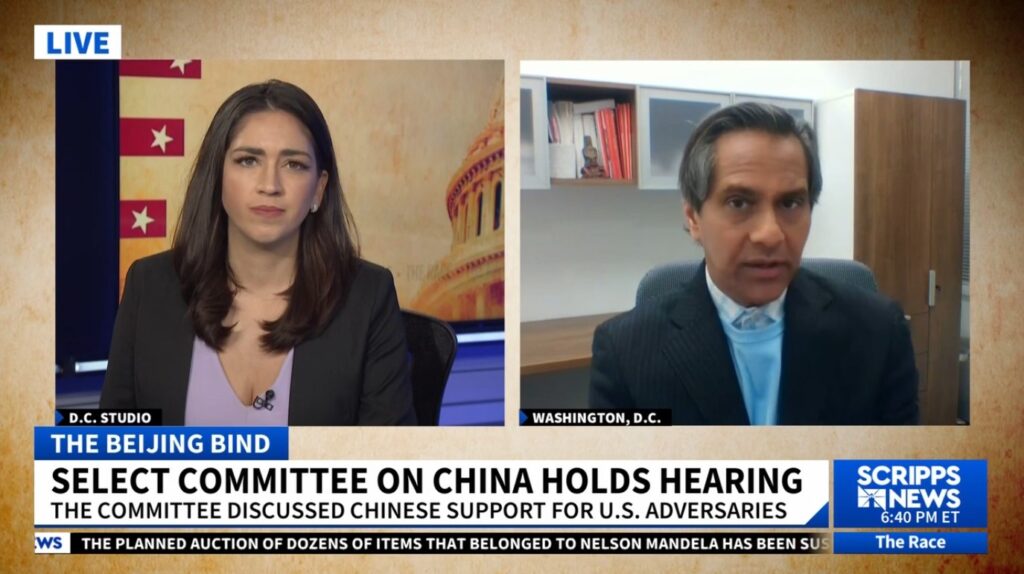
On Tuesday, January 30, 2024, Senior Fellow Sourabh Gupta discussed the Pompeo-Panetta testimony before the China Committee on deterring China on Scripps News.

The Institute for China-America Studies is an independent nonprofit, nonpartisan research organization dedicated to strengthening the understanding of U.S.-China relations through expert analysis and practical policy solutions.
1919 M St. NW Suite 310,
Washington, DC 20036
icas@chinaus-icas.org
(202) 968-0595
© 2024 INSTITUTE FOR CHINA-AMERICA STUDIES. ALL RIGHTS RESERVED.